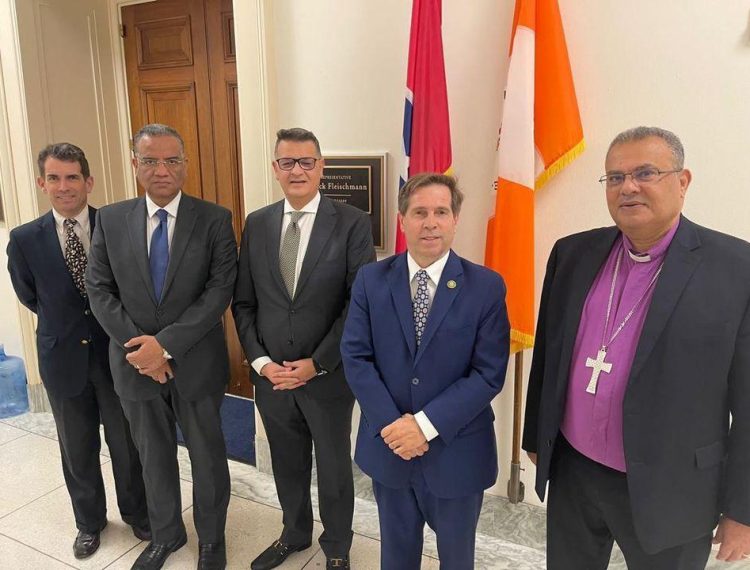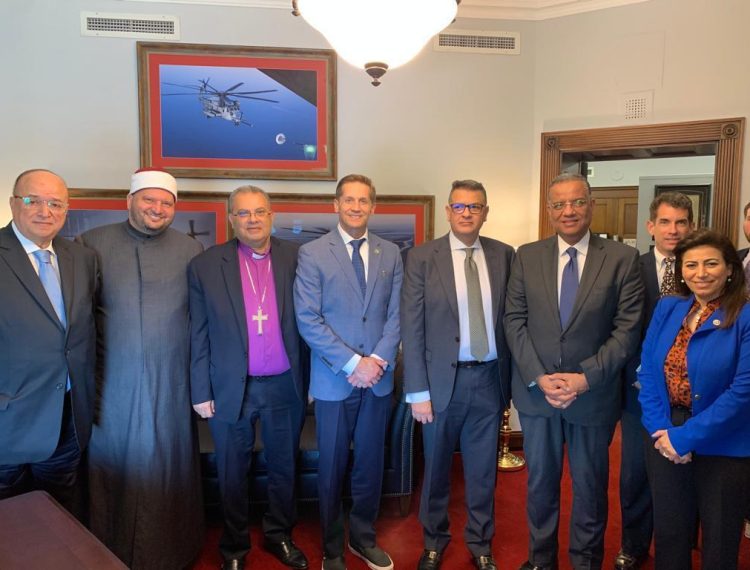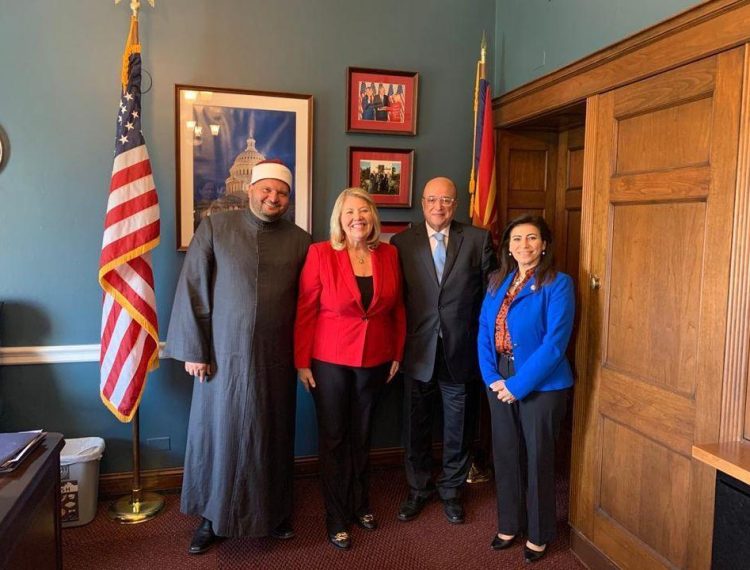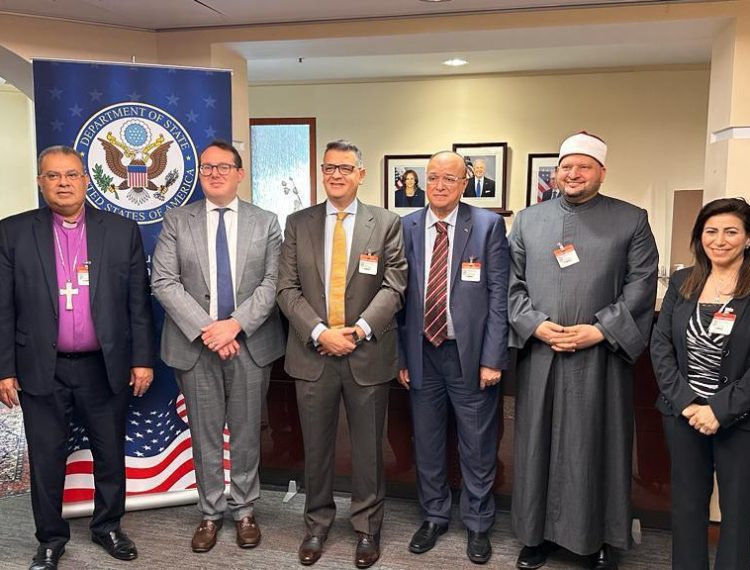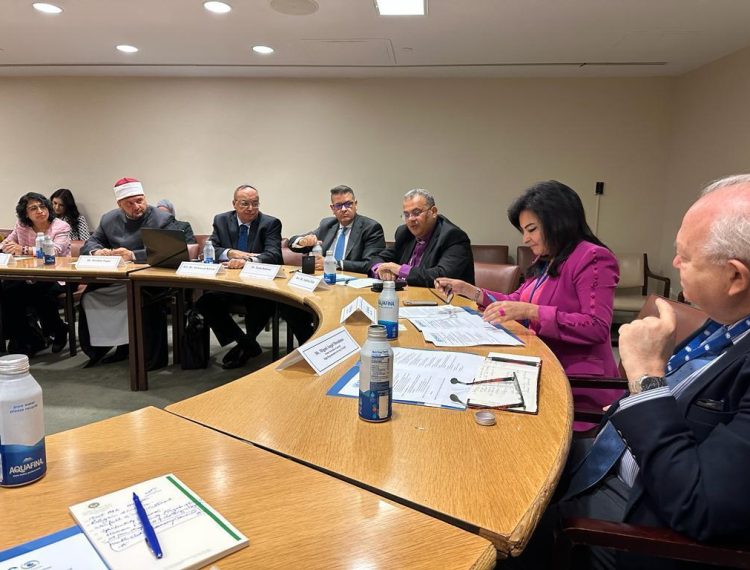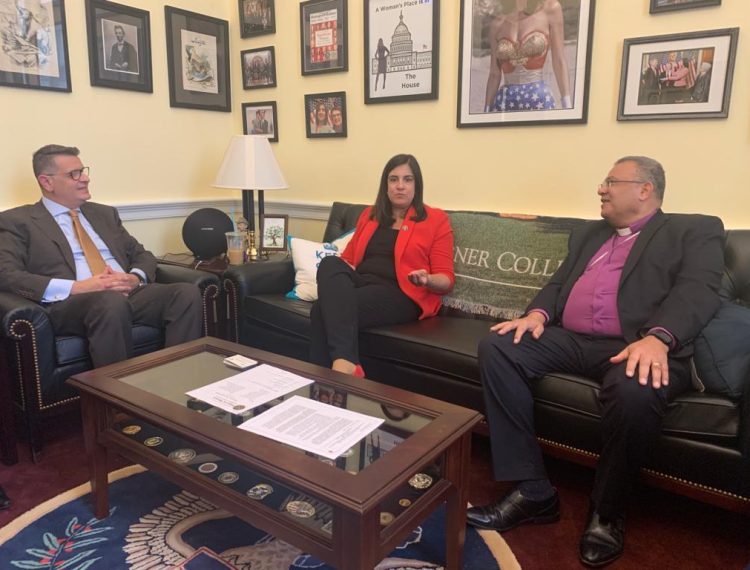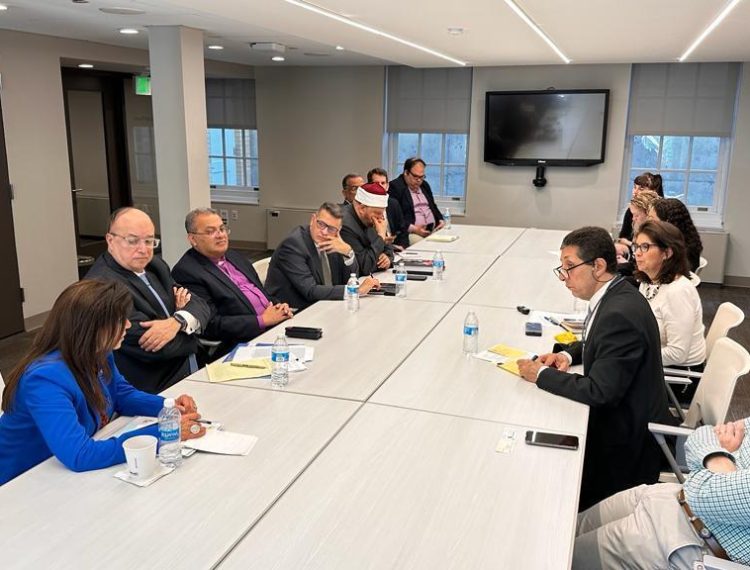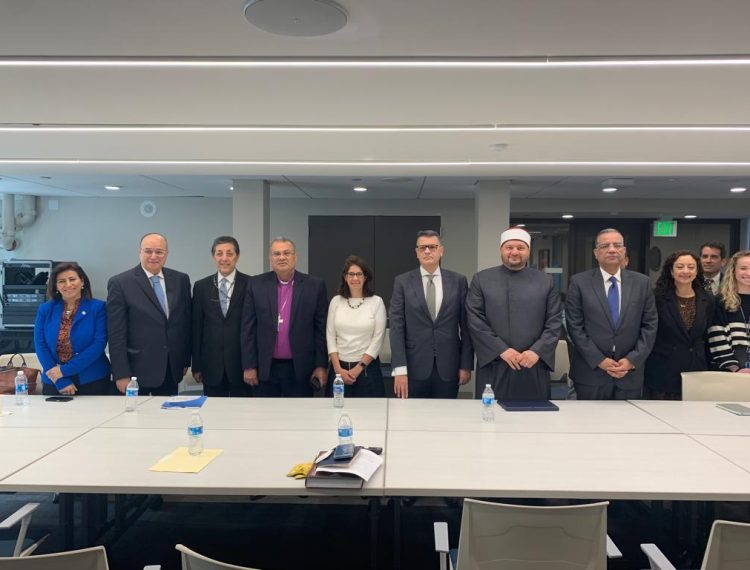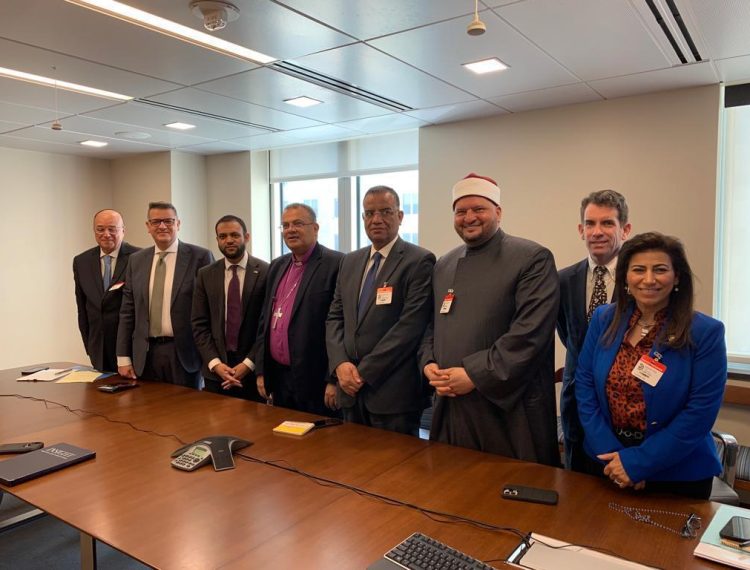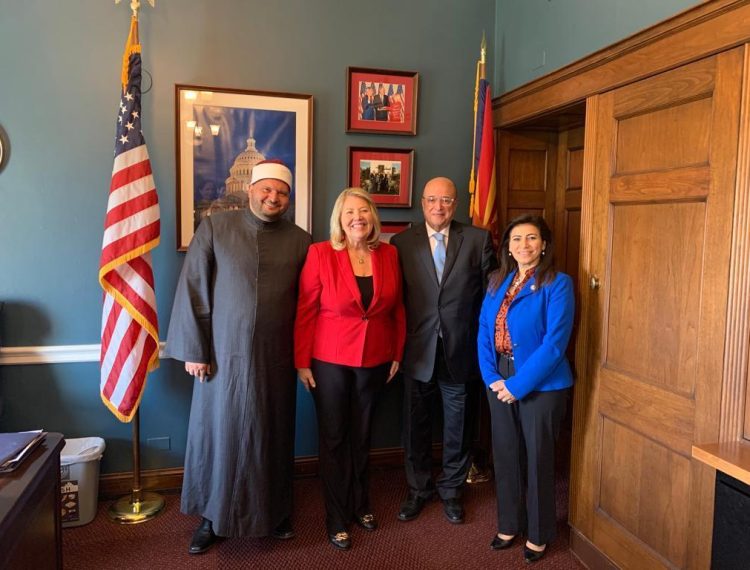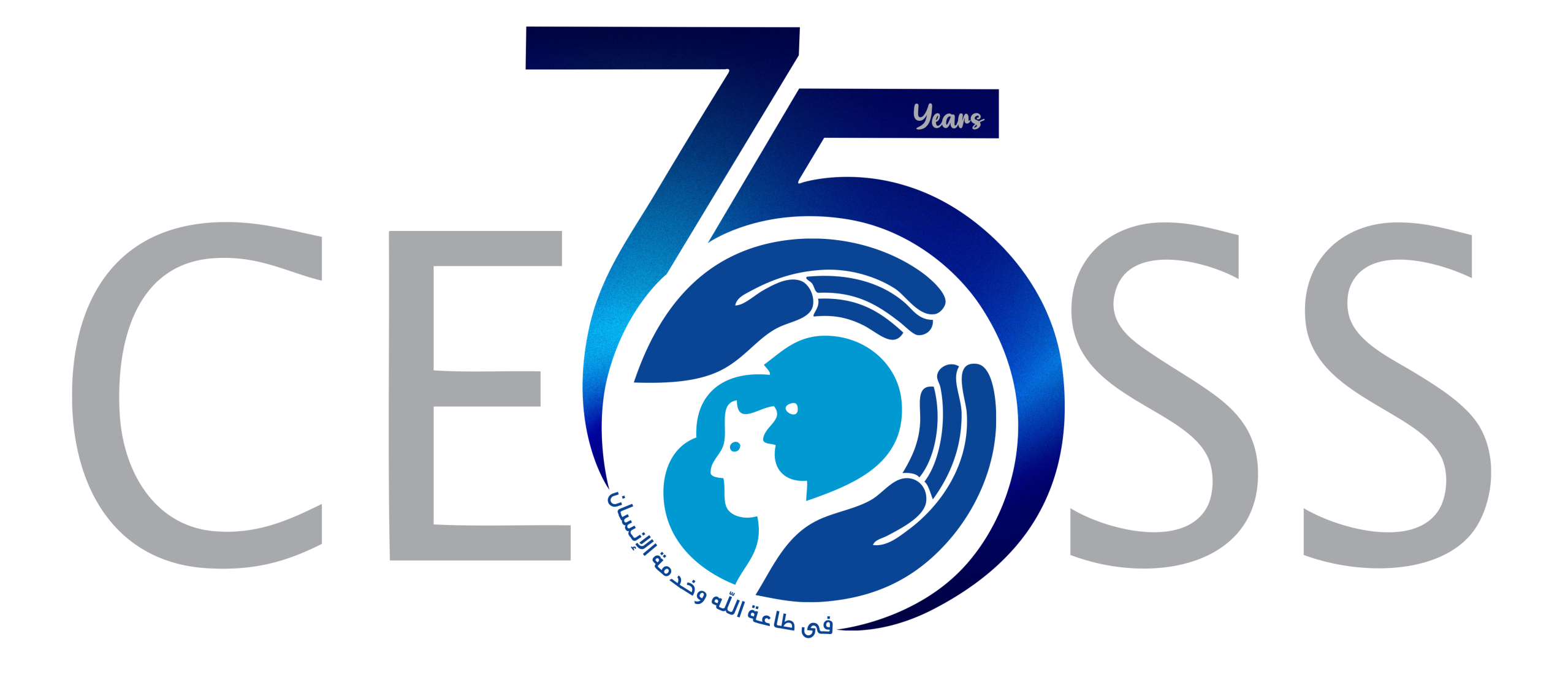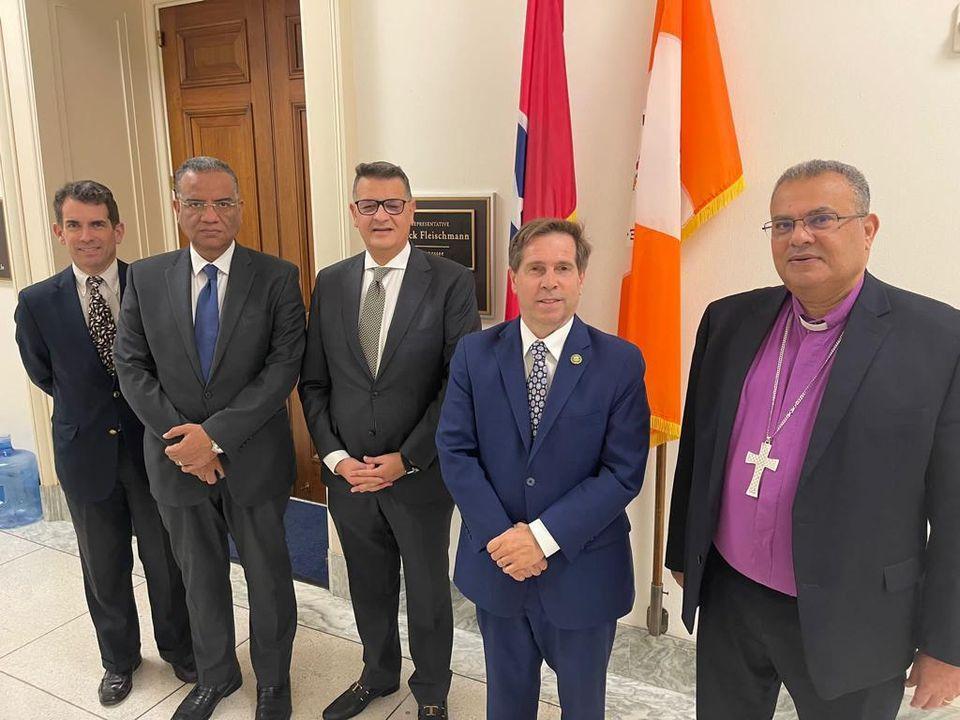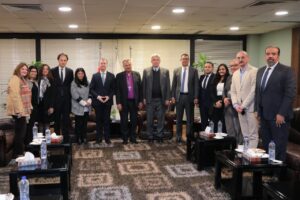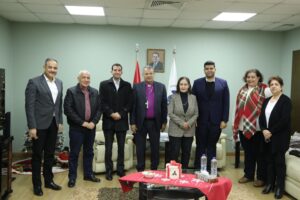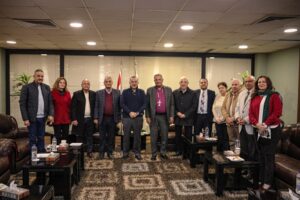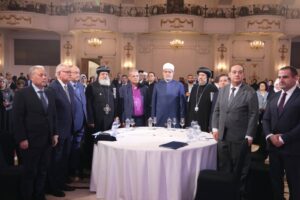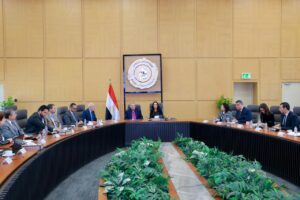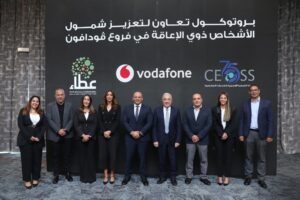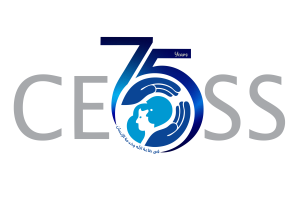The CEOSS’ president concludes the Egyptian-American dialogue tour in New York and Washington with a delegation of Egyptian civil society leaders. The United Nations and Congress are the most important stops of the Egyptian-American dialogue tour for the Evangelical delegation.
The Renaissance Dam, support for investment in Egypt, human rights, and building bridges are among the main topics of the Evangelical delegation’s agenda in the Egyptian-American dialogue. Dr. Reverend Andre Zaki, the head of the Evangelical Organization, stated:
“Egypt’s achievements in the field of religious freedoms in the past ten years are historic. The Egyptian state has made significant and effective efforts in confronting terrorism. We invite the American society to experience investment and tourism in Egypt.”
American experts and leaders pointed out challenges facing American society, including internal terrorism threats such as the new Nazism, white supremacy, and movements against others, to the Egyptian delegation.
Dr. Reverend Andrea Zaki, the CEOSS’ president in Egypt and the head of the Evangelical Coptic Organization, concluded the Egyptian-American dialogue tour in New York and Washington, leading a delegation of Egyptian civil society leaders. The delegation included Deputy Tarek Radwan, President of the Human Rights Committee in the House of Representatives, Dr. Mahmoud Karem, Deputy President of the National Council for Human Rights, and Senator Mahmoud Muslim, President of the Culture, Tourism, Antiquities, and Media Committee in the Senate. And Dr. Ibrahim Najm, advisor to the Grand Mufti of Egypt and Secretary-General of the International Fatwa Organization, and Mrs. Samira Luka, Director of the Culture Dialogue Department at the Evangelical Organization and a member of the National Council for Human Rights, participated. This was organized by the Cultural Dialogue Forum of the Evangelical Coptic Organization in partnership with civil institutions and churches in the United States.
The Egyptian delegation met several important and influential figures in American society during the tour. The tour began at the United Nations headquarters in New York, where the delegation participated in a seminar led by Dr. Nehal Saad, Director of the Alliance of Civilizations Center. The delegation also met with the Personal Representative of the UN Secretary-General for the Dialogue of Civilizations, Mr. Miguel Moratinos, in the presence of Mr. Ambassador Majed Abdel Fattah, Head of the Arab League Mission in New York, as well as public figures, representatives of American churches within the United States, and some other religious and spiritual figures.،
Moratinos praised Egypt’s achievements in the field of religious freedoms in the past ten years, saying, “We should be proud of what we have accomplished in a very short time in Egypt.” He also praised the efforts of the Grand Imam and Pope Francis in this regard.
In the same context, a large number of heads of global churches, specially invited from all over the United States, participated in a dialogue with the Egyptian delegation. The former US Ambassador to Egypt, Richard Donny, attended the meeting. During the dialogue, the importance of the role of religions in bridging perspectives instead of being a cause for discord was discussed. American religious leaders pointed out that their country is currently facing internal terrorism threats as well as emerging phenomena such as the new Nazism, white racism, and movements against others. They stated that American society is now facing internal challenges, including the polarization and recruitment of youth through the internet and social media.
In Washington, D.C., the Egyptian delegation met with several American leaders in the presence of His Excellency Ambassador Motaz Zahran, the Egyptian Ambassador to Washington. The two parties exchanged views on the current situations in Egypt and the United States and the importance of building bridges between the peoples and the need for communication to present accurate images of Egyptian and American societies. In the same context, the delegation met with Ambassador for Religious Freedoms Ambassador Rashad Hussein, and Mr. Harris, Deputy Assistant Secretary of State for Near Eastern Affairs. They discussed the challenges faced by Egypt since 2011, including the rule of the Muslim Brotherhood, the June 30 revolution, and the role Egypt played in confronting terrorism as well as groups that nurture it. The meeting with Mr. Harris, Deputy Assistant Secretary of State for Near Eastern Affairs, highlighted the depth of the relations with the United States, emphasizing the “importance of Egypt’s role in building peace in Sudan and Gaza.” He also praised the relations with the Ministry of Defense.
The delegation appreciates Egypt’s achievements in the field of freedoms and values the sacrifices made by Egypt in its war against terrorism. After listening to each member of the delegation, the delegation expressed gratitude for the depth of analysis, the variety of topics discussed, and the accomplishments made in Egypt in an extremely short period. They specifically praised the role of the National Council for Human Rights, the numerous development projects, youth conferences, and noted that they had heard our extensive discussion on the issue of the Renaissance Dam.
During the Egyptian-American dialogue delegation’s tour in Washington, the delegation met with members of Congress, including Rep. Malliotakis Cannon, Rep. Richard McCormick of Georgia, Rep. Chuck Fleischmann, and Rep. Debbie Lesk.
The meetings were characterized by great diversity, and discussions included the issue of the Renaissance Dam and encouraging American businessmen and major American companies to invest directly in Egypt, similar to what is currently happening with major European companies like Siemens. Additionally, there was an emphasis on promoting tourism. Regarding this point, Congresswoman Debbie Lesko from Arizona commented that she returned a week ago from an excellent visit to Luxor, Aswan, and the Red Sea, where she witnessed significant progress in various fields, especially in roads and bridges. She also praised fellowship programs for studying in the United States, which are supported by some Egyptian businessmen. She welcomed them to her office during their visit to Washington.
The Congresswoman also expressed her appreciation for President Sisi. She listened to the achievements in the field of religious freedom in Egypt, including the establishment of the observatory by Al-Azhar, the correction of religious thought, and the issuance of over a million correct fatwas by Dr. Ibrahim Najm and his team, reaching callers from all around the world. She acknowledged that Egypt is winning the battle against extremism.The delegation also heard an explanation about the reconstruction of Sinai and the giant projects there, as well as an explanation about the initiative to eliminate hepatitis C, improve living conditions, efforts to eliminate illegal constructions, and the Civil Work Alliance. As part of the Egyptian-American dialogue activities, the Egyptian delegation visited the United States Institute of Peace (USIP) where they met with Ambassador Hisham Youssef, Senior Fellow MENA, and Mona Yacoubian, Vice President of MENA and North Africa. The discussions of the Egyptian delegation focused on several important issues, including Egypt’s qualitative leap in the field of human rights in recent years. Egypt’s leadership vision has achieved milestones in economic, social, cultural, political, and civil freedoms, such as the launch of the National Human Rights Strategy in the presence of the President of the Republic and the declaration of 2022 as the Year of Civil Society. The Presidential Pardon Committee has released 1,400 prisoners, and Egypt participated for the first time in over 19 years in the Committee of Experts in Geneva for Civil and Political Rights, responding openly to comments and criticisms. Egypt is preparing for a similar experience in Geneva in November on the topic of combating torture. There was also a discussion about achievements in citizenship, combating hate speech and discrimination, especially in empowering women, religious freedoms, and people with disabilities. Egypt hosts nine million refugees and migrants who enjoy all rights and services without discrimination, and the state bears high expenses in this regard, in addition to what the Egyptian state does on the border with Sudan during the current crisis. The delegation emphasized that Egypt is the gift of the Nile and the issue of the Grand Ethiopian Renaissance Dam requires direct intervention from the highest levels of American diplomacy. The Nile is a source of life for 11 countries, not exclusive to anyone, and Egypt is keen on a peaceful resolution to the crisis. Egypt expects intervention from the United States, as food security is linked to water security, and access to water is a fundamental human right.
